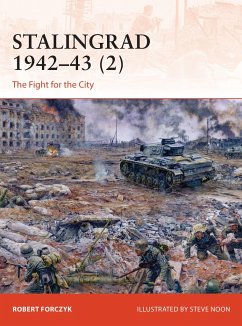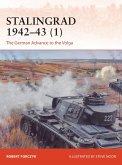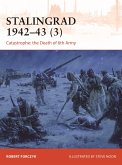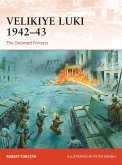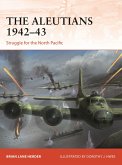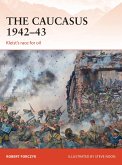The second in a three-part series examining the Stalingrad campaign, one of the most decisive military operations in World War II, that set the stage for the ultimate defeat of the Third Reich. By early September 1942, 6.Armee and 4.Panzer-Armee had reached the outskirts of Stalingrad, and Hitler believed it was about to fall. He ordered for the capture of the city as soon as possible, but this was easier said than done. On 13 September, a direct German assault was launched against the city on the Volga and a protracted urban battle followed amid the ruins, already devastated by massive Luftwaffe raids. Although hit hard by the initial German offensive, a ruthless and obstinate Red Army was able to hold onto the city through a costly battle of attrition that sacrificed huge amounts of men and materiel. This second volume in the Stalingrad trilogy, written by a leading expert on the military history of the Eastern Front, brings the fighting in the city to life in full visual detail, including the iconic battles at the Krasny Oktyabr Steel Plant, the Grain Elevator, the Barrikady and STZ factories, the 'Tennis Racquet' and Rynok-Spartanovka. Drawing from sources on both sides, this book offers a truly comprehensive account of history's greatest urban battle.
Hinweis: Dieser Artikel kann nur an eine deutsche Lieferadresse ausgeliefert werden.
Hinweis: Dieser Artikel kann nur an eine deutsche Lieferadresse ausgeliefert werden.

